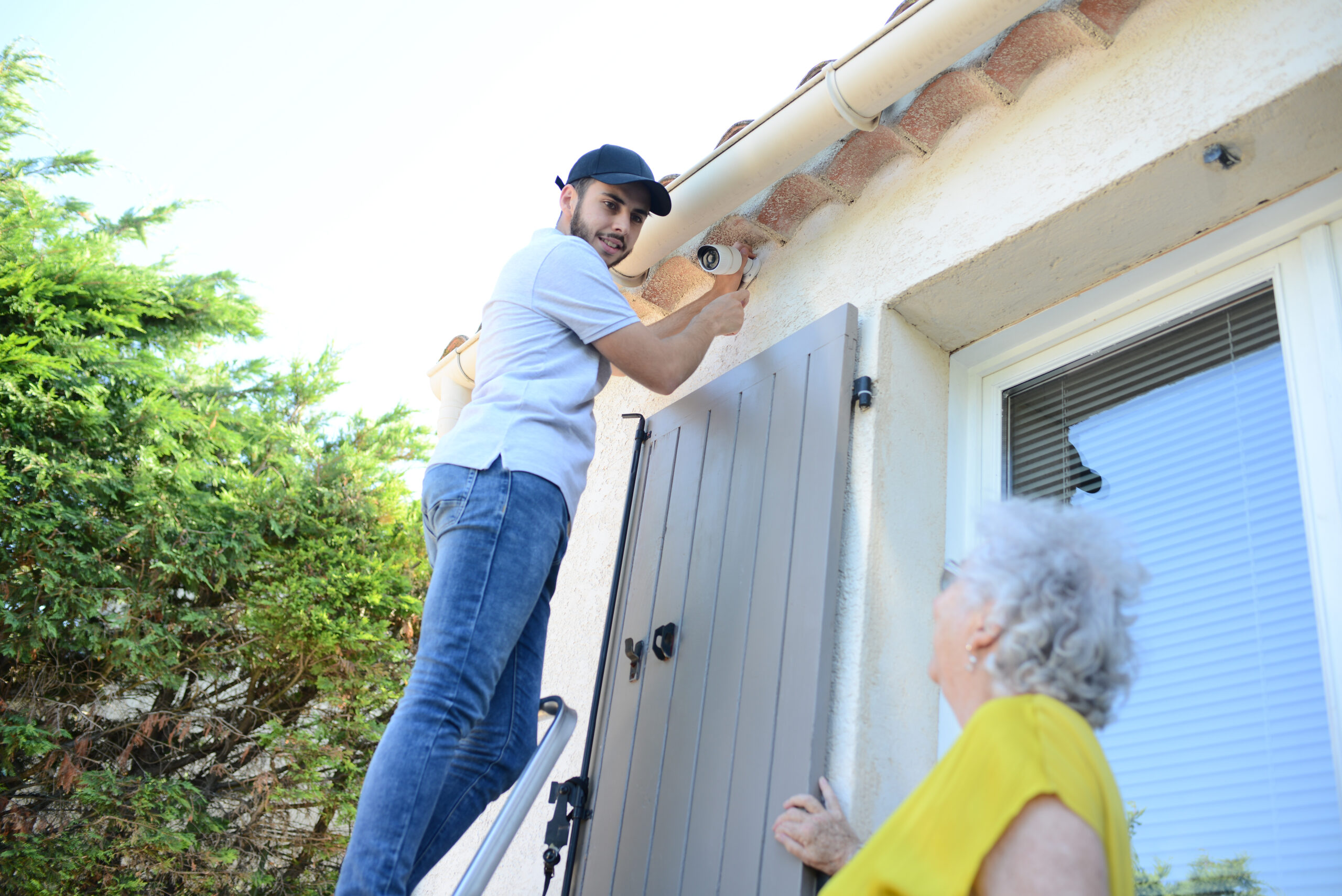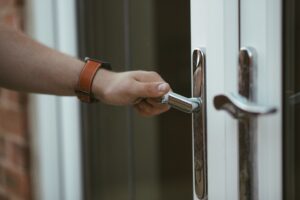Easy Ways to Prevent Burglars from Entering Your Home
 April 11, 2022 Blog 0 Comment
April 11, 2022 Blog 0 Comment Burglaries dropped dramatically in the 1960s when the lock came out. Burglaries decreased steadily as more households installed them in the 1970s and have since plateaued. Most modern homes now have digital security systems, and there are private security guards patrolling neighbourhoods.
Despite this, many residences were still broken into. When burglaries occur, authorities sometimes have trouble identifying the perpetrators.
Theft occurs more frequently throughout the day while many individuals are at work. Some studies estimate that roughly 40% of yearly household burglaries are non-forced entries.
You don’t have to build a modern Fort Knox to keep unwelcome intruders out. Many solutions require no money — only good sense.
- Don’t brag
Leaving certain items on your lawn or in plain view from the street can unknowingly attract criminals like frantic flea market shoppers. If you have a bike or motorcycle, bring it indoors or into your carport. Also, don’t leave a new plasma TV or other expensive electronics or appliance boxes out by the garbage or recycling bin. Those tell folks you have something new that could sell for a good price. It may also make people wonder what else you have in your house.
You may also be flaunting off too much to passers-by. Open your curtains, blinds, or shades and look around your home. If you have several pricey objects in clear view or near windows, consider a simple remodelling to hide them.
- Trick thieves
If robbers know someone is home, they are less likely to try to break in. Because most individuals are at work during the day, more break-ins occur. So when you go out, give the impression someone is still there. You can also leave a light, music, or television on. However, if you’re going to waste energy by not switching off lights when you depart, use energy-efficient compact fluorescent bulbs.
Put a burglar alarm sign in your yard to mentally fool them. This won’t stop them from testing it, but it may deter them. These warnings deter most residential thieves.
- Lock windows and doors
Unlocking older sliding doors is as simple as popping them out of their frames. Newer ones are more difficult to secure, but they can still be a point of entrance for robbers. Slide a dowel, steel bar, or two-by-four into the back groove.
A simple clip or pin into the frame will prohibit it from rising over a few centimetres. This will protect you if someone comes out of the screen and you haven’t locked the window. If you have a wooden window frame, drill a hole where the top and bottom windows meet. And then a heavy metal pin or a strong nail. Remove the stopper to fully open the window and replace it for safety.
Also, examine window air conditioners. Add a stopper to the window if you can jimmy it up from outside.
- Never leave a key out
Leaving a spare key beneath a potted plant or mat may seem like a nice idea if you are locked out. But that allows a thief to enter quickly. Someone may also observe you retrieve the key, revealing your hiding place.
Instead, provide a duplicate to a trusted neighbour or acquaintance who lives close by. Since most people now have cell phones, you can call for aid or go to the person’s house. You could also hide the backup in a combination lock box outside.
Never put personal details on your wallet and keys. If you lose them, it’s easy to track them back to your house and break in.
- Yard security
Tall bushes and unkempt trees provide safe havens for crooks waiting to break into your home. That doesn’t entail you have to clear your yard. Just keep it neat.
Low plants in front of windows provide additional shelter for robbers. Protect higher story windows by removing thick tree branches. Regular pruning of larger bushes and trees removes dark shadows that hide attackers.
Depending on your property, you can combine these strategies. It can also improve the beauty of your yard.
- Call the cops
The police can help you prevent crime rather than just fight it. For example, if you’re going out of town, call the cops and ask them to drive by your house.
Many police agencies also provide free property security evaluations. Consult your local law enforcement agency’s crime prevention officer to assess your property’s security needs.
Profit from a new police practice called community policing. Officers assigned to neighbourhood beats make an extra effort to create connections with residents. Organizing neighbourhood safety classes or walking instead of driving may help. If your local cops do this, get to know them. The success of community policing has been related to fewer crimes and healthier neighbourhoods.
- Plan ahead of time
Due to vacationers, criminal activity rises during breaks. As previously said, notify the local police if you will be out of town for a lengthy period. Inform trusted neighbours about your trip and ask them to keep a close eye on your property.
More importantly, don’t leave an empty house when you leave town. A thief will see your residence as a large target. Don’t modify your greeting to inform callers that you’ve left town on your landline. Avoid having piled-up mail, overgrown grass, and newspapers in your yard, indicating you’re miles away.
Ask a buddy to house sit or at least pick up your mail. Ask them to relocate your automobile to make it appear you’re still there. If you live in a frigid climate, hire someone to clear the snow from your doorstep. In the summer, hire a lawnmower.
- Get to know your neighbours
Knowing the poeple on your street is one of the most critical safety measures you can take. Strangers will stand out in a tight-knit community, and people will be more likely to keep an eye on each other’s security. Neighbourhood watch programs, begun in the 1960s, can significantly reduce crime.
Studies show that watching programs reduces crime and violence in neighbourhoods. Watch groups are governed by the legit enforcements organizations, which provide information on starting and participating in one.
Renters are 85 per cent more likely than owners to have a break-in. This may be because renters are less likely to form a neighbourhood watch group.
While it’s good to know others are looking out for you, you must equally look out for yourself. If you aren’t paying any attention, you may unwittingly provide a red carpet for a thief to enter your home.
Keep your name and vacation plans hidden, even if you feel paranoid. On your mailbox, only put your house number. Anyone can find your contact information, work address, and other information with your last name.
Inform yourself about local crime. Investigate the crime section of your local newspaper. Online crime maps are also available from local police stations, especially in larger cities. If you see a lot of illegal behaviour, increase security. Also, keep a watch out for suspicious activity. A little more work might help protect your house and safety.
- Lock it
As stated previously, almost 40% of break-ins are non-violent. That means many people leave their homes unlocked. Always lock the deadbolt if your doors have a thumb latch and a deadbolt. Check the locks on weaker doors like patio and sliding doors for kick resistance. Don’t forget to lock the garage door as you depart. It’s easy to open a closed garage door.
Still, the best way to deter intruders is to have an easy-to-operate modern alarm system. If you need Bosch alarm systems in Perth, get in touch with Smart Security. Its team will help you with your home security needs.

